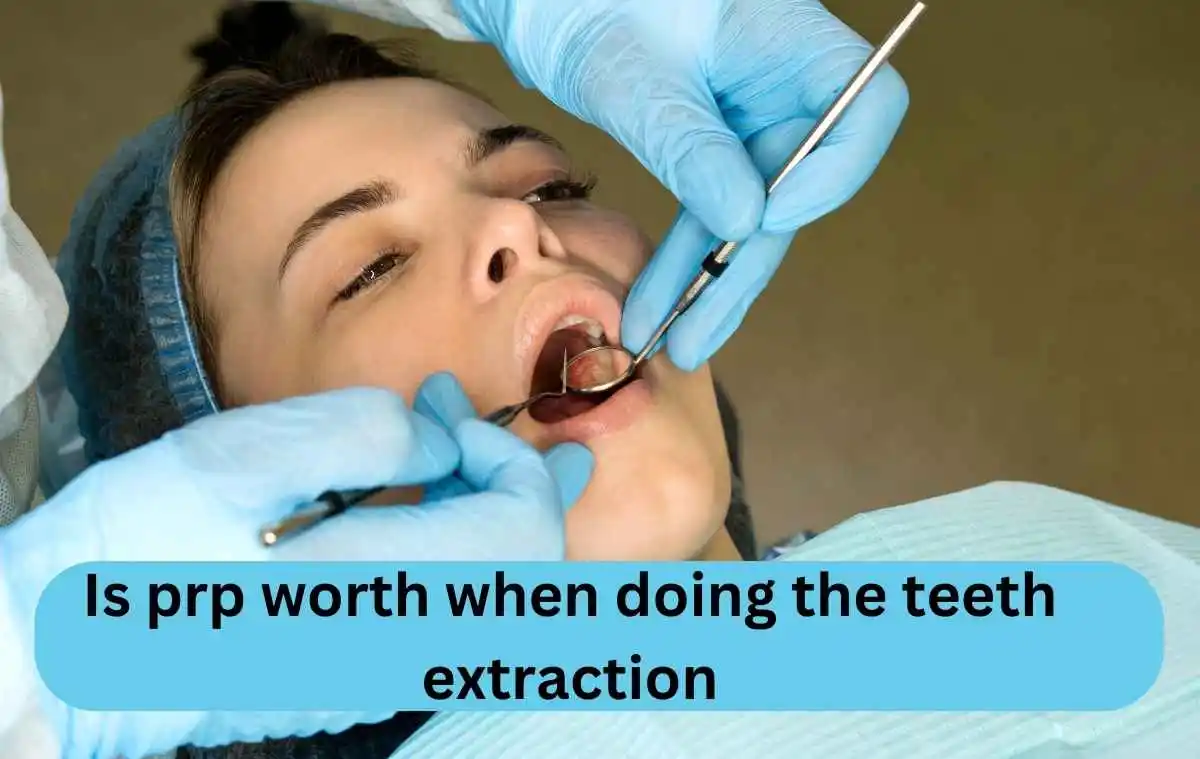Learn is prp worth when doing the teeth extraction and how PRP can improve healing, reduce pain, and speed recovery after dental surgery.
Potential benefits of PRP include quicker wound closure, reduced pain/swelling, and lower risk of complications like dry socket. However, research on its effectiveness is still emerging and results vary individually.
For a routine, uncomplicated extraction, PRP may provide little added benefit to warrant the increased cost. But it could speed recovery for complex extractions or those more prone to issues.
The decision largely depends on an assessment of risk factors in each unique case. A consultation with your dentist is recommended to determine if PRP makes sense given your specific surgical situation and individual healing tendencies. While promising, more research is still needed to clearly define its impact for various extraction scenarios.
Use of platelet rich plasma in dentistry
In dentistry, it is used after oral surgeries like tooth extractions. This can result in benefits like less pain/swelling, faster healing times, and stronger bone formation after procedures. Studies have shown PRP helps socket healing after tooth extractions. It is also being researched for other uses like periodontitis treatment.
However, more extensive research is still needed to better assess PRP’s effectiveness compared to standard treatment methods. Variables in preparation and outcomes can differ between users.
By harnessing a patient’s own healing platelets, PRP shows promise when judiciously applied by dentists following surgeries. But its full impact requires further large randomized controlled trials.
prp dental procedure
The PRP can be injected directly into sites needing tissue regeneration, like extraction sockets or areas receiving grafts, to accelerate natural healing. Studies have shown PRP may reduce recovery times and discomfort when used for applications such as dental extractions and implants by promoting quicker bone and soft tissue repair through the patient’s natural growth factors.
As research continues, PRP is demonstrating potential as a minimally-invasive method to enhance outcomes for many regenerative dentistry treatments.PRP involves extracting a portion of the patient’s own blood and processing it to concentrate the platelets. These specialized cells contain powerful growth factors essential for rebuilding bone and soft tissues.
Once prepared, the enriched plasma can be injected into surgical sites to augment healing. When tooth extractions are performed, applying PRP to the socket helps regenerate lost structure faster. It may reduce pain, swelling, and speed up the timeline for placing implants.
Areas grafted for ridge augmentation or dentures also benefit from PRP’s growth factors stimulating robust regrowth. Periodontists are finding it effective for reversing gum disease when combined with standard root planing.
Even complex cases like impacted tooth removal, biopsies, and jaw fractures seem to have better outcomes applying PRP. The concentrated signaling molecules recruit the body’s stem cells to repair damage more vigorously.
is prp worth when doing the teeth extraction
Yes, prp is totally worth when doing the teeth extraction for people of any age. Platelet-rich plasma (PRP) has gained interest as a way to potentially improve extraction recovery. PRP involves extracting some of the patient’s own blood before surgery. When platelets in the blood are concentrated, they release growth factors essential for mending tissue. If surgeons inject this enriched plasma into extraction sites, it may speed healing.
Some research has found PRP can reduce post-extraction discomfort by stimulating bone regeneration faster at the socket. It seems to shorten the time needed to feel normal again. With less bruising and discomfort, patients may get back to daily activities sooner.
However, not all studies have noticed major benefits over traditional socket care. Everyone’s wound response is also unique, so individual results will vary. PRP also requires an added cost, and insurance coverage is unpredictable.
Considering potential pros like less pain versus the financial responsibility, patients should weigh factors with their dentist. For minor extractions expected to heal smoothly, PRP may not provide enough clear advantage over natural recovery.
But in tricky cases involving impacted teeth or patients who tend to heal slower, PRP could make recuperation less difficult. When carefully considered, it shows promise – but isn’t guaranteed – to enhance extraction aftercare.
prp for wisdom teeth removal
PRP shows promise to enhance wisdom tooth healing, it is not necessarily required for standard surgeries that typically heal well on their own.
- Wisdom teeth surgeries often cause pain and prolonged swelling during recovery.
- PRP involves concentrating a patient’s own platelets, known to aid natural healing.
- When injected into extraction sites, growth factors in PRP may speed bone/tissue regeneration.
- Studies show PRP can reduce wisdom tooth surgery recovery time and discomfort levels.
- However, benefits may vary and PRP requires added costs not covered by insurance.
- For routine removals, natural healing is usually sufficient without PRP.
- PRP could provide more meaningful benefits for difficult impactions.
- But a case-by-case discussion with an oral surgeon is best to assess value for individual patients.
Is PRP necessary for wisdom teeth removal
Platelet-rich plasma (PRP) therapy has shown promise in speeding healing by delivering a concentrated dose of a patient’s own growth factors directly to the extraction sites.
While most routine wisdom tooth removals heal well on their own, PRP may help reduce post-operative discomfort for difficult extractions of impacted teeth.
PRP involves added costs and may provide limited benefits for straightforward cases. By discussing individual oral health histories and surgical complexity, dentists can determine if PRP makes the most sense or if natural healing is sufficient for each particular wisdom teeth removal.

